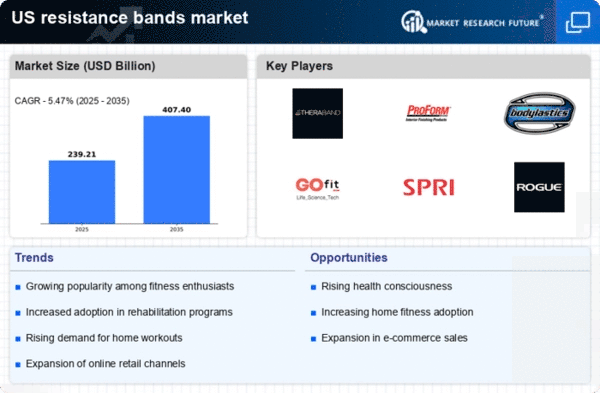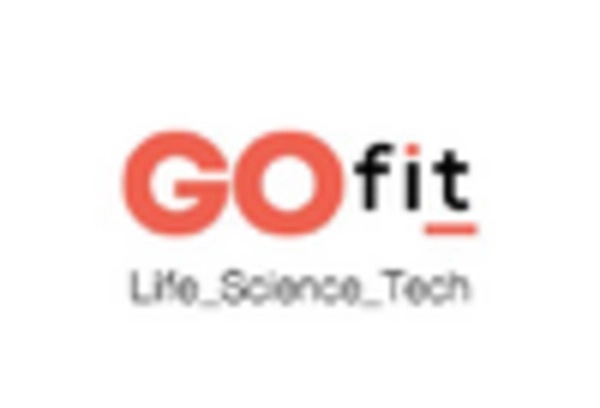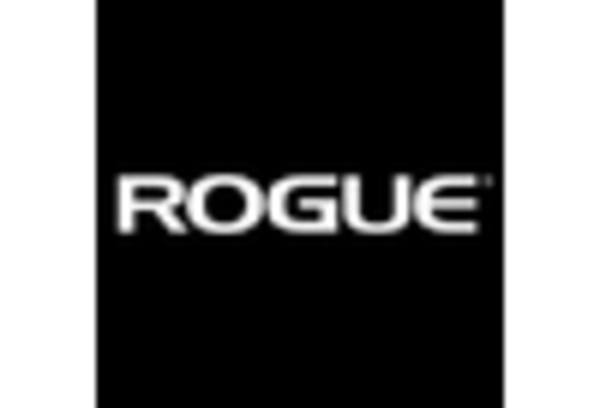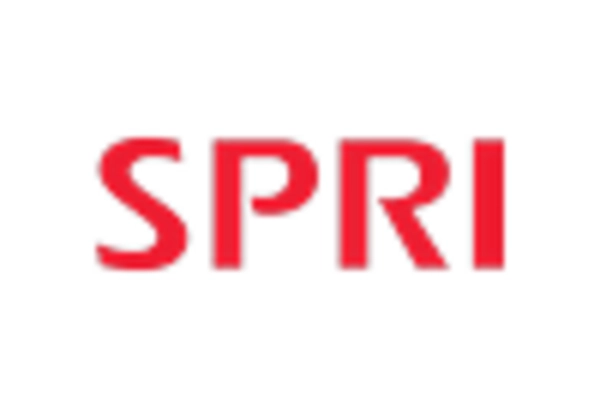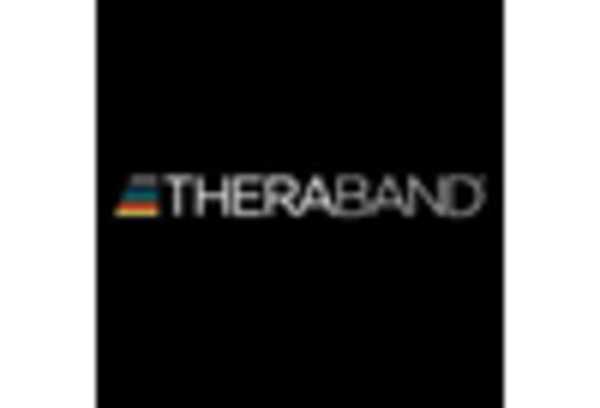Rise of Functional Training
The growing trend of functional training, which emphasizes exercises that mimic everyday activities, is significantly influencing the resistance bands market. Resistance bands are particularly well-suited for functional training, as they allow for a wide range of motion and can be used to target multiple muscle groups simultaneously. This versatility appeals to fitness enthusiasts and trainers alike, as it enhances workout efficiency. The resistance bands market industry is expected to expand as more fitness programs incorporate functional training methodologies. Additionally, the increasing number of fitness studios and personal trainers advocating for functional training may further bolster the demand for resistance bands, as they are essential tools in these training regimens.
Growing Health Consciousness
The increasing awareness of health and fitness among the population appears to be a primary driver for the resistance bands market. As individuals prioritize their well-being, they seek versatile and effective workout solutions. Resistance bands offer a convenient way to engage in strength training, which is essential for maintaining muscle mass and overall fitness. According to recent data, the fitness equipment market in the US is projected to reach approximately $15 billion by 2026, with resistance bands playing a significant role in this growth. The resistance bands market industry is likely to benefit from this trend as more consumers incorporate these tools into their home workout routines, thereby enhancing their physical health and fitness levels.
Affordability and Accessibility
The affordability of resistance bands compared to traditional gym equipment is a notable factor driving the resistance bands market. With prices typically ranging from $10 to $50, resistance bands provide an economical alternative for individuals looking to enhance their fitness without incurring high costs. This accessibility is particularly appealing in a landscape where many are seeking budget-friendly fitness solutions. The resistance bands market industry is likely to see increased demand as consumers recognize the value of these products in achieving effective workouts at home or on the go. Furthermore, the lightweight and portable nature of resistance bands allows users to easily incorporate them into their daily routines, further driving their popularity.
Increased Online Retail Presence
The expansion of online retail platforms is transforming the way consumers purchase fitness equipment, including resistance bands. E-commerce has made it easier for consumers to access a variety of products from the comfort of their homes. This shift is particularly relevant in the resistance bands market, where online sales have surged, accounting for a significant portion of total sales. The resistance bands market industry is likely to benefit from this trend as more consumers turn to online shopping for convenience and variety. Additionally, the rise of social media marketing and influencer endorsements is further driving online sales, as consumers are increasingly influenced by fitness trends showcased on these platforms.
Focus on Rehabilitation and Physical Therapy
The growing emphasis on rehabilitation and physical therapy is emerging as a key driver for the resistance bands market. Healthcare professionals increasingly recommend resistance bands for their effectiveness in rehabilitation exercises, particularly for injury recovery and strength building. This trend is likely to expand the consumer base for resistance bands beyond fitness enthusiasts to include individuals undergoing physical therapy. The resistance bands market industry may experience growth as healthcare providers incorporate these tools into their treatment plans. Furthermore, the versatility of resistance bands allows for tailored exercises that can accommodate various rehabilitation needs, making them an essential component in therapeutic settings.


